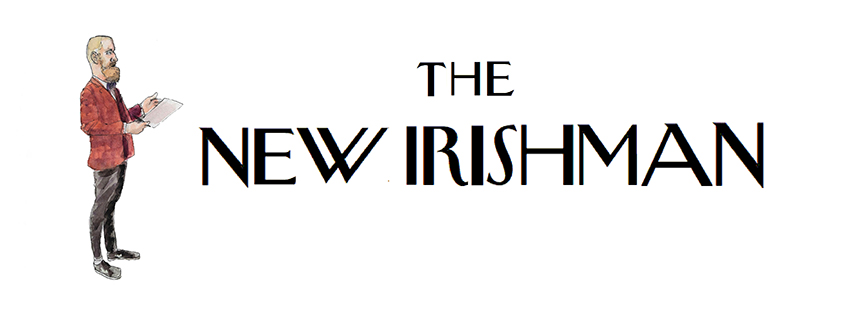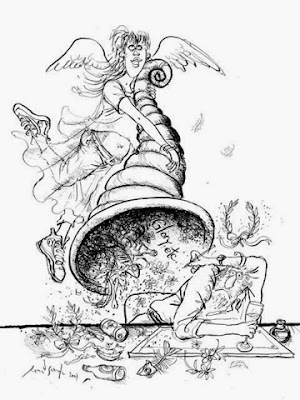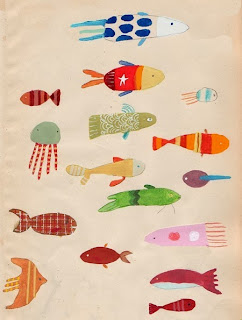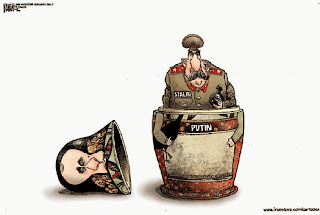 |
| The above image is a screen shot from a video on remix culture by Kirby Ferguson here and here |
"George Lucas collected materials, he combined them, he transformed them. Without the films that preceeded it, there could be no Star Wars. Creation requires influence. Everything we make is a remix of existing creations, our lives and the lives of others."Watch the Kirby Ferson video, Everything is a Remix here. See Ferguson's blog here. Read about the remix culture on Wikipedia here. Watch the Maria Popova video in full here. Daniel Hannan on combinatorial creativity here.
My blog post on Aleks Krotoski on combinatorial creativity is here (Krotoski's blogs here, here and here). My previous posts on the artist's journey featuring political cartoonists Morten Morland, Martin Rowson and Steve Bell here, on the standing on the shoulder of giants cartoon by Thompson here and on Terry Bradley here. With a special focus on my work and on how I moved from a wine label illustration to an exhibition series here, on the elements that were combined to create a wall painting for Michael Deane here, the process behind a wall painting here, my move from pen and ink and into a clay model version of the Michael Deane Decano Man here, and my explanation on how the original Decano man was created here. On the Deaneos wine label, click here. For the Deaneos Prosecco label, click here.












.jpg)

















